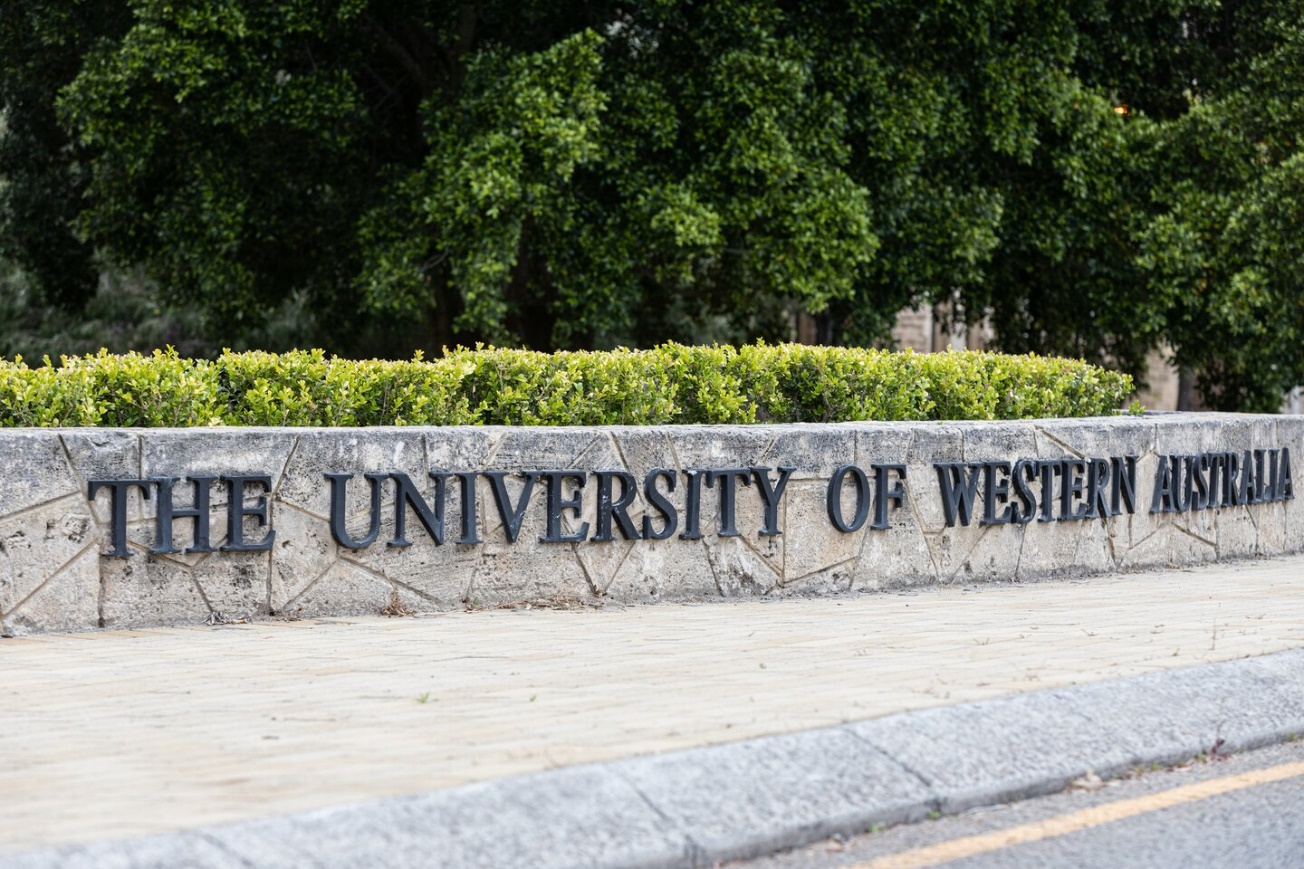Workshop Basic Info
Organizer:
University of Western Australia
Workshop Chair:
Personal Bio:
Elaine Chapman has an undergraduate degree in psychology (First-class honours, won Australian Psychological Society Award for the best performance in her university) and a PhD in psychology. She has taught in the areas of child and educational psychology, assessment, quantitative research design, and statistics over the last 20 years in 3 different universities (Monash, USyd, and UWA). She is passionate about child and educational psychology, and in particular, about enhancing the lives of children and youth in the affective domain. She has supervised many Doctoral and Master's students who have joined her group to pursue research in this area.
Workshop Committee Members
- Dr. Jian Zhao UWA
- Dr. Peyman Sabet UWA
Background
The importance of assessment literacy for educators at all levels of the system has been recognised increasingly in the last 20 years. Despite this, many preservice and practicing educators express concerns about how to develop suitable assessment tasks in their classes. The rapidly shifting landscapes created by educational technologies (in particular, generative artificial intelligence) have further increased concerns around how assessments can incorporate – or exclude – the use of these new technologies. Unfortunately, the literature in the area of assessment in education is immense, dispersed, and at times, conflicting, which does little to assist busy educators who wish to expand their knowledge in this field.
Goal/Rationale:
This workshop aims to ‘distil out’ key ideas from this vast body of literature and present a new model of assessment literacy. The workshop chair has imbedded the ‘big ideas’ within the education assessment literature under eight key ‘attributes’ of effective assessment tasks. The primary take-home message is that all decisions about assessment should be made with deliberation and a thorough understanding of key underpinning principles, as well as specific, context-relevant learning goals.
Call for Papers
This workshop is aimed at any student, researchers, and educators interested in assessment design and educational effectiveness, and it will focus on those engaged in constructing and evaluating assessment tasks. The workshop will discuss the AARDVARC model, which constructed to outline the criteria for effective assessment tasks. Different contributors, including myself, will be taking 2 or 3 of these topics each. The aim is to exchange experiences among participants and ideas, and to share achievements. It is also expected to offer solutions, recommendations, and discuss strategies useful for educators and policymakers in enhancing assessment practices. Several keywords are listed to share the potential themes with interested participants, while the topics are not limited to the provided keywords.
Keywords:
- Assessment
- Validity
- Digital Learning
- Pedagogy
- Psychology
Topics
Pedagogy
- Cooperative Pedagogy
- Experiential Pedagogy
- Pedagogy of Differentiation
- Assessment for Learning
- Cybernetic Pedagogy
- Pedagogy of Multisensory Learning
- Physical Education and Sport Studies
- Educational Psychology
- Behavioral Psychology
- Educational Philosophy
- Social Psychology
Educational Structures
- Autocratic and Democratic Educational Management
- Centralized and Decentralized Educational Management
- External and Internal Educational Management
- Primary, Secondary & Higher Education
- Educational Research, Development & Publishing
- Professional Training, Development & Concerns in Education
- Educational Policy
Submission
All submitted papers should report original and unpublished work, experimental or theoretical, and are not under consideration for publications elsewhere. All papers should be no less than 4 pages in length and must strictly follow the format of the workshop template. All papers are subject to reviews and edits. Prospective authors are kindly invited to submit full text papers that includes title, abstract, introduction, tables/figures and references. Other styles of papers are not accepted. Please submit your papers in both .doc/.docx AND .pdf formats as attachments via email to sympo_perth@iceipi.org by the given deadline. It is unnecessary to submit an abstract in advance.
Publication
Accepted papers of the workshop will be published in Lecture Notes in Education Psychology and Public Media (Print ISSN 2753-7048), and will be submitted to Conference Proceedings Citation Index (CPCI), Crossref, CNKI, Portico, Google Scholar and other databases for indexing. The situation may be affected by factors among databases like processing time, workflow, policy, etc.
Ways to Participate
To break the barriers of time and space and to provide seamless communication opportunities for worldwide scholars, both online and offline participation methods are supported for the workshop. Participants are encouraged to bring their own insights, experiences, and examples to share with the group through either presenting a poster online or attending in person.
Poster Session
The poster session will provide an opportunity for researchers to present their work in a visual and interactive way, allowing for more engagement and discussion with other attendees. Authors of qualified papers will be invited to present their works with digital posters. We believe that this online poster session will still be a great platform for participants to share, discuss, and cooperate. All accepted authors will receive an invitation email to present at the official workshop website. Please note that all poster presenters must submit the poster before August 16, 2024. Detailed information on your presentation date and time will be confirmed closer to the meeting. If you have any questions, please email sympo_perth@iceipi.org.
Poster Presentation Guidelines
- Poster presentations must be prepared using the template provided:
*Poster layout template for poster presentation (download)*Poster layout background (download)
-
Posters should generally be in A1 size (width: 594mm x height: 841mm) and include the followings:
Title, author and co-author names, and the affiliation(s) information. Body parts, including "Abstract", "Introduction", "Methods", "Results", "Discussion" and "Conclusions".
- Presenters are suggested to set the font size properly and avoid placing anything at the margin part of the poster as it will be difficult to view.
- Posters should be well illustrated. All the pictures used should be high quality and with high resolution.
- All the posters will be displayed online on the official website. Each poster will have both a small thumbnail and a full-size version.
- Posters will be displayed during the online session. After the presentation is over, the full-size version of all posters will become invisible. But thumbnails still can be seen on the website.
(You can refer to the instructions for more detailed information. Additional presentation guidelines may be announced by workshop committees.)
Attendance Onsite
The workshop welcomes participants to attend on-site and share the innovative experiences and researches with the group. Therefore, we provide some general information about the visa application. If you want to attend the workshop on-site, please email the workshop committee: sympo_perth@iceipi.org.
VISA
https://immi.homeaffairs.gov.au/home
In order to ensure the information is correct and up to date, there may be changes which we are not aware of. And different countries have different rules for the visa application. It is always a good idea to check the latest regulations in your country. You should confirm details with your local Consular Office. This page just gives some general information of the visa application.
Australia Visa Information
- Do I need a visa to enter Australia?
Unless you are an Australian citizen, you will need a valid Australian visa to enter the country. New Zealand passport holders can apply for a visa upon arrival in the country. All other passport holders, regardless of age, must apply for a visa before leaving home. You can apply for a range of Australian visa types, including tourist visas and working holiday visas, at your nearest Australian Embassy or Consulate. You can also apply for certain types of visas on the Australian Department of Home Affairs website.
There are different Australian visa types available for travelers to Australia. Knowing which Australian visa to apply for depends on the length of your stay, your passport and the purpose of your visit. You'll also need to meet certain financial and medical requirements, be outside of Australia when applying and maintain health insurance for the duration of your stay.
- Electronic Travel Authority Visa (subclass 601)
This visa allows you to visit Australia as many times as you want, for up to a year, and stay for three months each visit. This visa is available to passport holders from a number of countries and regions, who live outside Australia. A step-by-step guide on how to apply is here.
E-Visitor (subclass 651)
This is a free visa for multiple visits to Australia for tourism or business purposes for up to three months at a time within a 12-month period. This visa is available to passport holders from a number of European countries and it cannot be extended.
Visitor visa (subclass 600)
The Visitor visa allows you to visit Australia, either for tourism or business purposes. It is open to all nationalities. Generally, a period of stay of up to three months is granted, but up to 12 months may be granted in certain circumstances. Applicants will have to pay a fee to submit their application.
-
How can I apply for an Australian tourist visa?
The application process may differ depending on which visa you need. You can only apply for the Electronic Travel Authority visa (subclass 601) through the Australian ETA app. A step-by-step guide on how to apply is located here.
For other visas, you can apply online by creating an ImmiAccount and completing the application process. Be sure to submit your application well in advance of your travel date to allow enough time for processing. You may be asked to provide further supporting information. You will be notified in writing if your tourist visa is approved and it will be digitally linked to your passport.
For more information on different visa types, and Australian visa requirements including how to apply for an Australian visa, visit the Department of Home Affairs website.
Highlights
This workshop focused on the question of how we can embrace the use of generative artificial intelligence in our assessment practices, and potential challenges in doing so across all levels of education. There were three presenters (A/Prof. Elaine Chapman; Dr. Jian Zhao; and Dr. Peyman Sabet), all of whom teach in the area of assessment and evaluation at the university level. The ten workshop participants were drawn from a wide variety of foundation discipline areas and levels of education. These included: secondary level science; secondary level mathematics; primary level languages; primary level mathematics; university level computer sciences; university level engineering; and university level linguistics. The participants were first introduced to the foundational measurement and assessment concepts from the AARDVARC model. Some of the concerns and opportunities associated with using generative AI in assessment were then introduced, and the participants subsequently worked in small groups on exercises set by the presenters. These called upon participants to apply the foundational concepts to design innovative approaches for using AI in their own assessment practices. The diversity of participant backgrounds contributed to a very rich workshop experience and discussion. A special issue of a journal is already planned based on the combined products and expertise of the group.
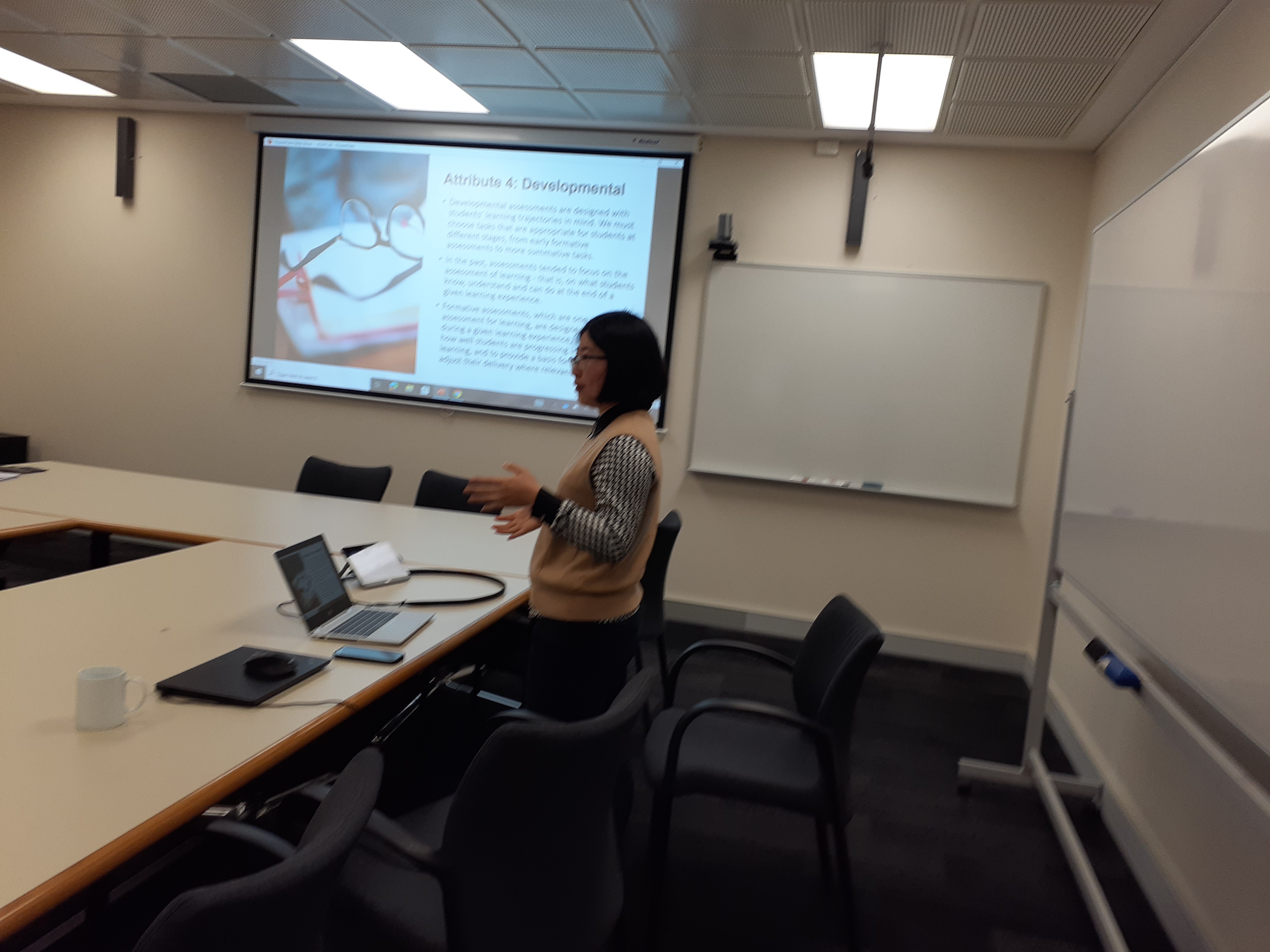
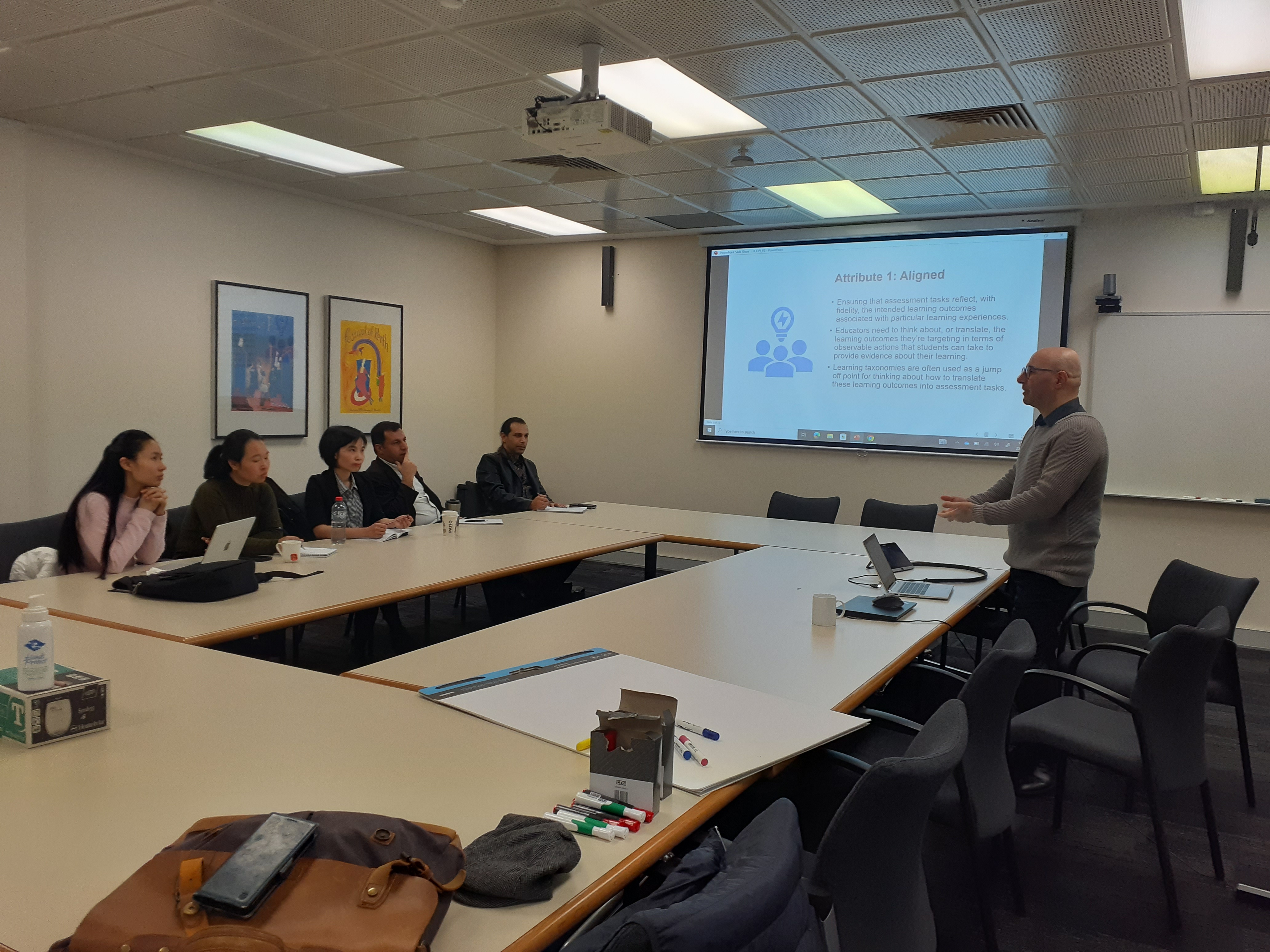
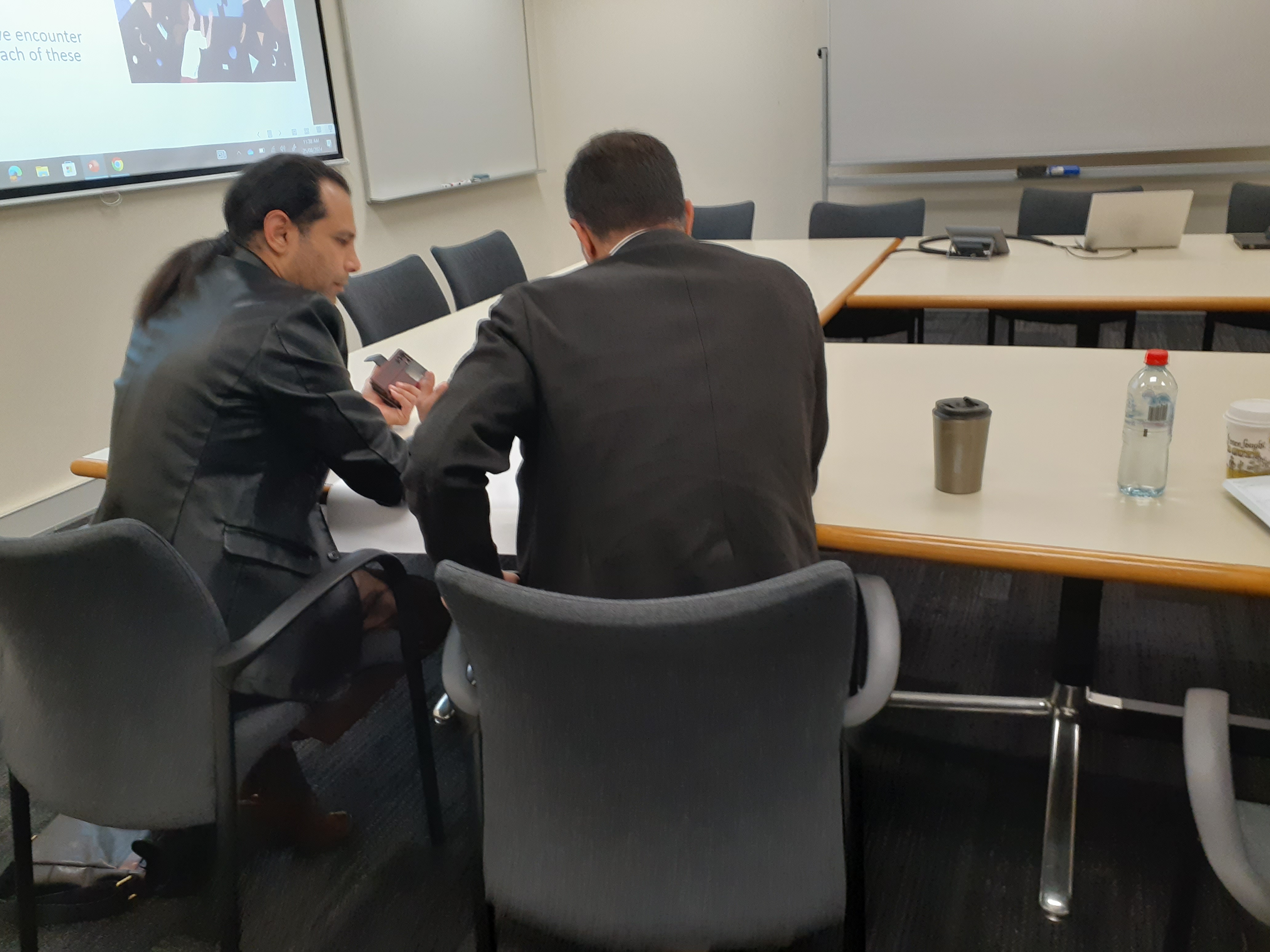
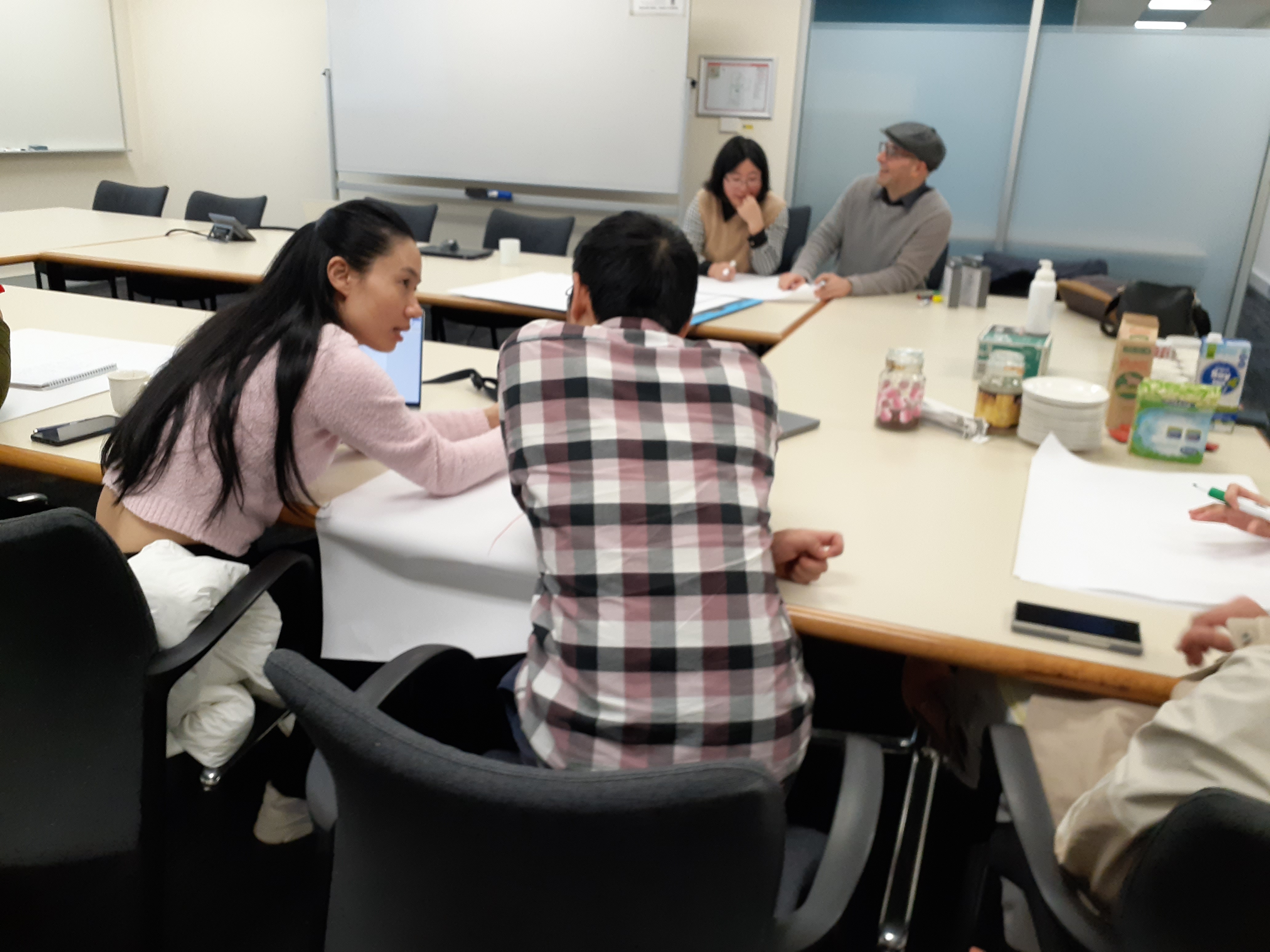
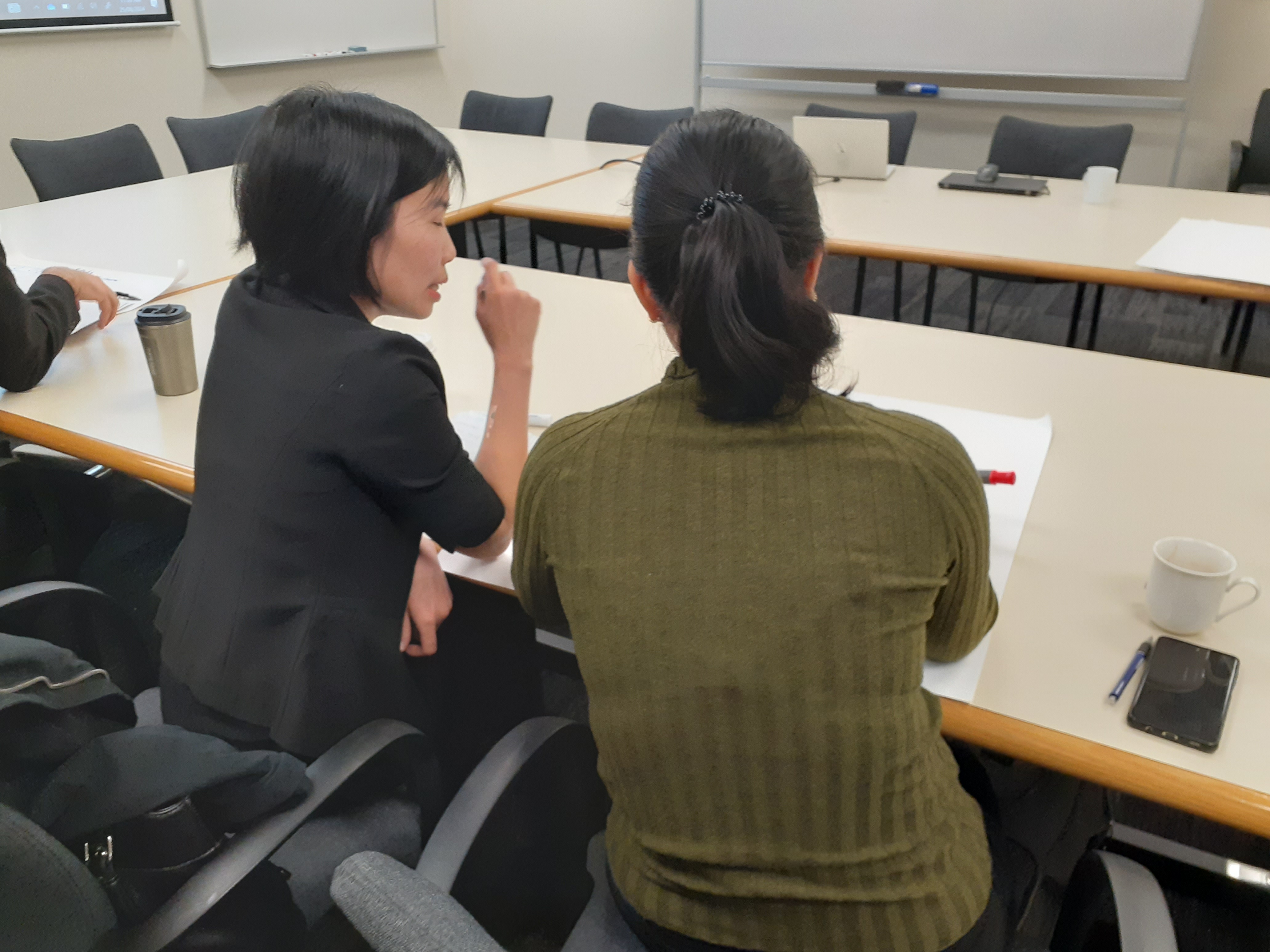
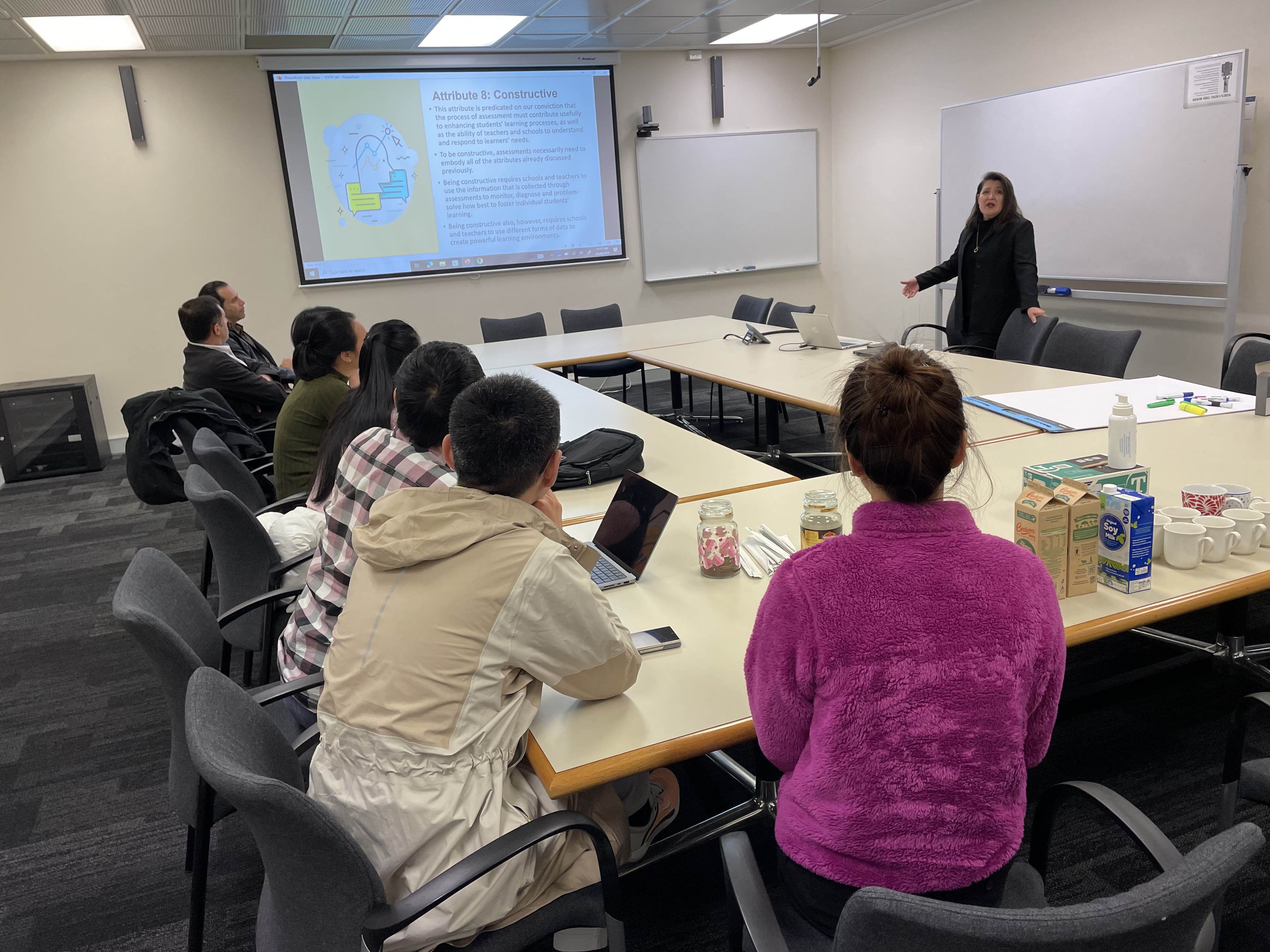
Access to Workshop: ICEIPI 2026 Workshop -- Perth - YouTube
